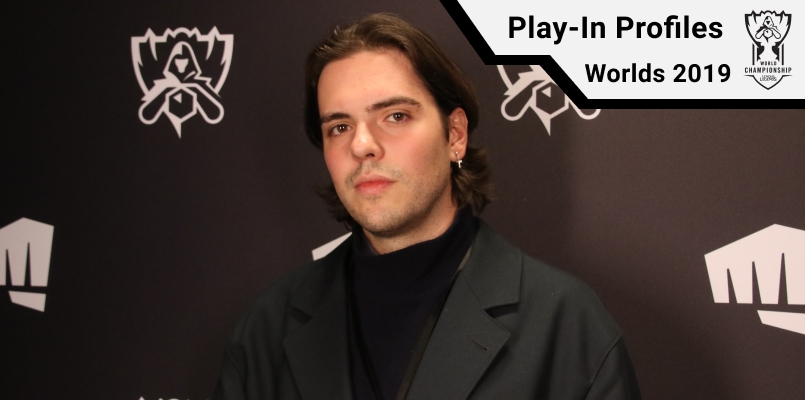Mentioned in this article
League/Tournament Brands:
On Nov. 11, the League of Legends World Championships will host its long-awaited finals in Paris. But all the way back in late September, Australia-based MAMMOTH was already bootcamping in the French city, putting every effort into achieving what no team in its region had done before: get out of play-ins, and advance to the main event.
“Solo queue in the offseason isn’t great, especially in Oceania, so we just looked at what is going to give us the best result,” said Ahilleas Papantos, team director for MAMMOTH. “This team was created to win, and to create history for Oceania, that’s always been our goal.”
While that dream has eluded Oceania for another year, the back-and-forth fights with Unicorns of Love cap off a successful year for the relatively-new esports brand. MAMMOTH joined the Oceanic Pro League (OPL) after Sin Gaming and its roster were sold to Mammoth Esports Enterprises in 2018, leading to a rebranding. In the 2019 summer split, the team broke new records by ending the tradition of first-placed teams taking home the trophy, and ending the win streaks of OPL teams Chiefs Esports Club and Dire Wolves.
International esports competitions are a daunting logistical task for up-and-coming teams. Papantos’ background in the music industry helped him mitigate the typical ailments of travel, such as jetlag, but the extended Paris stay was also to ensure the team took full advantage of practicing with the world’s best; an unmissable opportunity for underdogs.

“The other thing, that makes [Worlds] worth it, it’s definitely the international viewership that we don’t have access to in our region,” explained Papantos. “The OPL is a very passionate league, a very small one. Access to these numbers, this global audience, tells a great narrative for our brand, and opens up commercial opportunities.”
Like several other minor-region teams that made it to Worlds, MAMMOTH is now in new commercial conversations, adding to an existing portfolio that features athletic brand Kappa. The progress is also good for the organization’s board of investors, including Dion Appel, the former managing director of DDB Melbourne, and Luke Sayers, CEO of PWC Australia.
MAMMOTH’s rivals in the OPL include teams with either direct ownership or support from the Australian Football League (AFL). “We definitely stick to the same philosophy as these elite sporting clubs,” said Papantos. “Not having the public face of an AFL team didn’t necessarily mean we haven’t run our team as an elite sporting club would. We’ve had the best equipment, access to a great gaming house facility, even a sports psychologist working regularly with the team.”
Oceania may not be appearing in the Worlds group stage this weekend, but the region continues to expand. Venue startup Fortress Esports has partnered with Allied Esports Entertainment to launch its first public space, while players and casters continue to find their place in international competitions. When asked for how the region could develop further, Papantos gives the somewhat controversial opinion that play-in regions, such as Oceania, should be able to send talent overseas without those players taking up one of the teams’ sanctioned import slots.
“That would give an opportunity for our domestic players to have opportunities on international teams with a lesser risk on the international teams,” he said. “People say then ‘well, all the great players from OCE will go overseas,’ but it’s just like football. Those players will return, and the fans will follow them.”
The League of Legends World Championship is an annual competition in which the top teams from all 13 global regions for the game compete for the Summoner’s Cup. This year’s event begins in Berlin for the play-in and group stages, moves to Madrid for the semi-finals, and will conclude with the finals in Paris.
The play-in stage features the third seed qualifying teams from Europe, North America, South Korea and the LMS (Hong Kong/Macau/Taiwan), the second seed team from Vietnam, as well as regional qualifiers from CIS, Latin America, Turkey, Brazil, Japan, Oceania, and Southeast Asia. Only four of these teams will be able to advance to the group stage.

